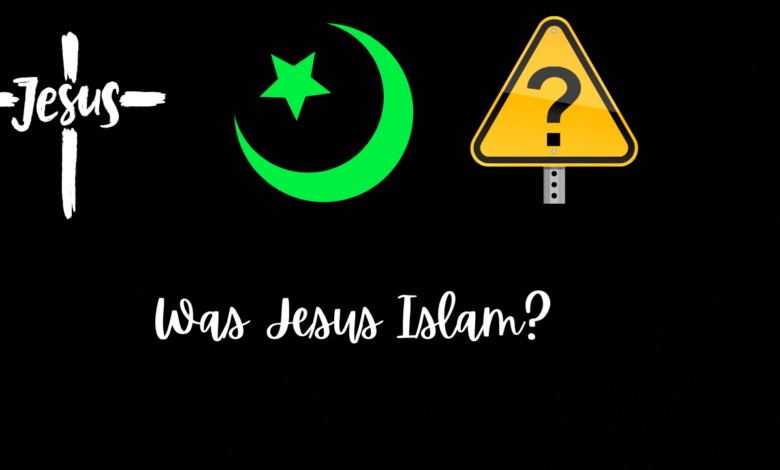Was Jesus Islam?

Introduction
The historical and theological connections between Jesus Christ and Islam are complex and intriguing. While Jesus Christ is primarily associated with Christianity, his significance in Islam cannot be understated. Islam acknowledges Jesus as one of the important prophets, though there are variations in how he is perceived between the two faiths. In this article, we delve into the relationship between Jesus and Islam, exploring his role, teachings, and significance in both religions.
Jesus in Islamic Beliefs
In Islam, Jesus is known as “Isa” or “Isa ibn Maryam,” which translates to “Jesus, son of Mary.” He is recognized as one of the major prophets in Islam, sent by Allah (God) to guide humanity. The Qur’an, the holy book of Islam, mentions Jesus in numerous places, portraying him as a significant figure with a unique birth and message. The Qur’an’s depiction of Jesus includes his miraculous birth to the Virgin Mary, his ability to perform miracles, and his proclamation of monotheism.
Similarities and Differences
Birth: Both Christianity and Islam emphasize the miraculous birth of Jesus. In Christianity, Jesus is believed to be the Son of God and born of the Virgin Mary. In Islam, Jesus’ birth is considered miraculous as well, with Mary being a virgin when she gave birth to him. However, Islam firmly rejects the concept of Jesus being divine or the literal Son of God.
Miracles: Both faiths recognize Jesus as a miracle worker. In the Bible, Jesus performed various miracles, such as healing the sick and raising the dead. Similarly, the Qur’an attributes miracles to Jesus, such as healing the blind and lepers and even breathing life into clay birds. These miracles are seen as signs of his prophethood in both traditions.
Message: While the central message of Jesus in Christianity revolves around salvation, forgiveness, and redemption through his sacrificial death, his message in Islam is focused on monotheism (Tawhid), righteousness, and obedience to Allah. Islam regards Jesus as a prophet who conveyed the message of submitting to God’s will and following the righteous path.
Crucifixion: One of the most significant differences between the two faiths is the interpretation of Jesus’ crucifixion. Christianity teaches that Jesus was crucified and resurrected for the redemption of humanity. In contrast, Islam holds that Jesus was not crucified; instead, he was raised to Allah without being killed. This belief is based on verses from the Qur’an that suggest Jesus’ crucifixion was an illusion.
Divinity: The concept of Jesus’ divinity is a fundamental difference between Christianity and Islam. Christians believe Jesus to be the Son of God and part of the Holy Trinity. In Islam, however, Jesus is seen as a prophet and a servant of Allah, stressing the Islamic principle of the oneness of God.
Shared Ethical Teachings
Despite theological differences, both Christianity and Islam share ethical teachings that overlap, particularly in areas of compassion, love, humility, and forgiveness. The Sermon on the Mount, a collection of teachings by Jesus in Christianity, emphasizes virtues such as mercy and peacemaking. Similarly, Islamic teachings highlight these values as well as the importance of charity, honesty, and kindness.
Conclusion
The relationship between Jesus and Islam is a complex interplay of shared beliefs and distinct theological differences. While Christianity and Islam view Jesus from different perspectives – one as the divine Savior and the other as a revered prophet – there is an acknowledgment of his importance in both faiths. Exploring these connections can foster understanding and promote dialogue between followers of these two major world religions.
FAQs about “Was Jesus Islam?”
Was Jesus a follower of Islam?
No, Jesus lived hundreds of years before the emergence of Islam. He is a central figure in Christianity and is not considered to have been a follower of Islam.
Did Jesus preach Islam’s teachings?
Jesus is believed to have preached a message that is central to Christianity, which differs from the teachings of Islam. While there may be some moral and ethical similarities, the theological concepts and doctrines differ between the two religions.
Did Islam exist during Jesus’ time?
No, Islam as a distinct religion did not exist during Jesus’ time. Islam was founded by the Prophet Muhammad in the 7th century CE, while Jesus lived in the 1st century CE.
Are there any historical connections between Jesus and Islam?
There are some parallels and shared figures between Islam and Christianity, including references to Jesus in Islamic texts. However, the religious contexts and interpretations are different.
Do Muslims believe in Jesus?
Yes, Muslims believe in Jesus, known as “Isa” in Arabic, as one of the prophets in Islam. However, their understanding of Jesus differs from the Christian belief in his divinity and role as the Son of God.
Did Jesus promote Islamic practices?
Jesus’ teachings primarily focused on moral and spiritual principles, rather than Islamic practices. Islam’s practices, rituals, and religious laws were established after the time of the Prophet Muhammad.






